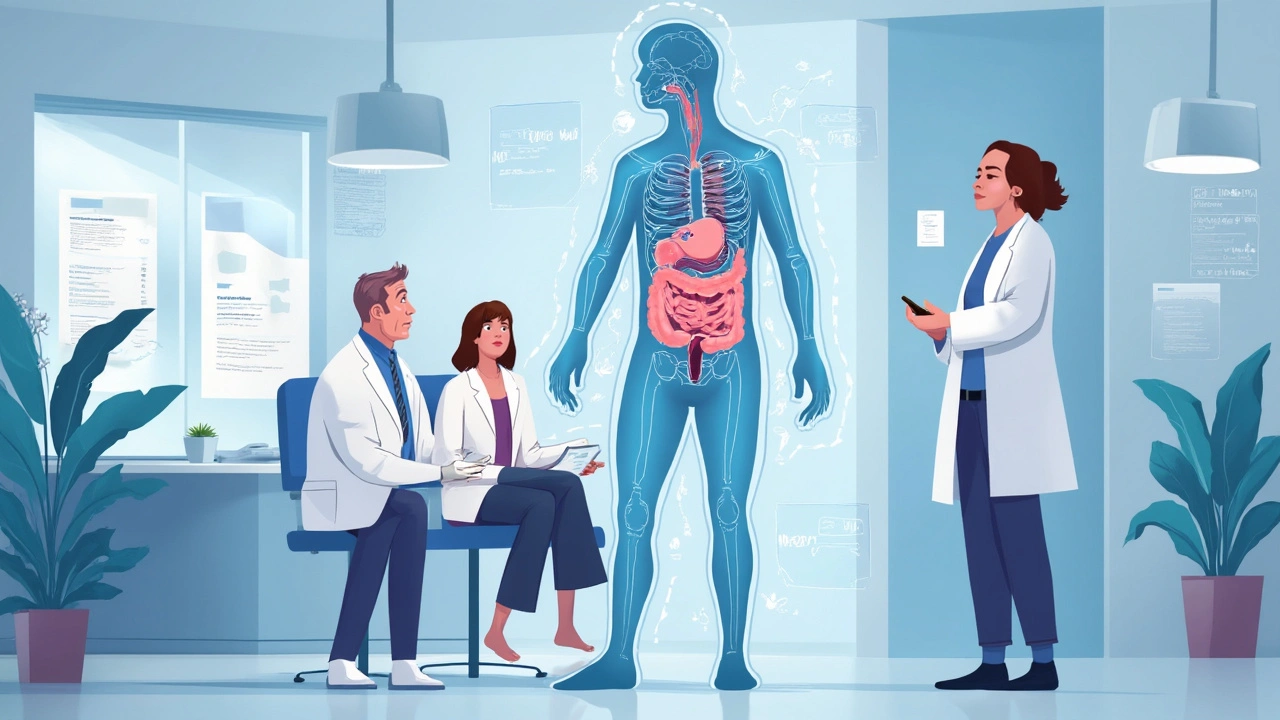Diarrhea: What Causes It, How to Treat It Fast, and When to Seek Help
Diarrhea hits at the worst times. Usually it’s short-lived and caused by viruses, food bugs, antibiotics, or travel. You want relief, not a lecture — so here are clear, practical steps you can use right now.
Quick at-home steps that actually help
First, stop fluid loss. Drink small sips often — oral rehydration solutions (ORS) are best. If you don’t have ORS, mix 1 liter of clean water with about 6 teaspoons of sugar and a half teaspoon of salt, or use a low-sugar sports drink. Avoid alcohol and caffeine; they make dehydration worse.
Next, adjust what you eat. Stick to bland, easy-to-digest foods: bananas, rice, applesauce, and toast (the old BRAT idea works). Skip dairy, greasy foods, high-fiber veggies, and sugary drinks until things settle.
Over-the-counter options: loperamide (Imodium) can slow watery diarrhea for adults without fever or bloody stool. Bismuth subsalicylate (Pepto-Bismol) helps with traveler’s diarrhea and upset stomach. Don’t give these to young children without a doctor’s OK.
Probiotics like Saccharomyces boulardii or some Lactobacillus strains can shorten mild cases. They’re not magic, but they often help if started early.
When antibiotics or a doctor are needed
Most diarrhea is viral and won’t need antibiotics. You might need antibiotics if you have high fever, bloody stool, severe cramping, or a confirmed bacterial cause (like certain travel-related infections). If you’ve been on antibiotics and develop severe or persistent diarrhea, tell your doctor — that can signal C. difficile, which needs prompt care.
Watch high-risk groups closely: infants, elderly people, pregnant women, and anyone with a weakened immune system. Dehydration can escalate fast in these groups.
Prevention is straightforward: wash hands after bathrooms and before eating, drink safe water when traveling, and cook food thoroughly. Vaccines (like the rotavirus shot for babies) cut risk for certain causes.
When should you seek emergency care? Go to urgent care or the ER if you have signs of severe dehydration (very little urine, dizziness, extreme thirst), bloody diarrhea, severe belly pain, a fever over 102°F (39°C), or diarrhea lasting more than 48 hours in adults. For babies, elderly people, or anyone with serious health conditions, call a doctor sooner.
If you want tips on specific meds or how antibiotics can cause diarrhea, check related guides on PharmaExpressRx.com like our pieces about antibiotics and drug interactions. And if you’re unsure, a quick call to your healthcare provider can save time and trouble.
Small steps—rehydrate, rest, and watch for warning signs—usually get you back on your feet fast. If things don’t improve, don’t wait to ask for help.
